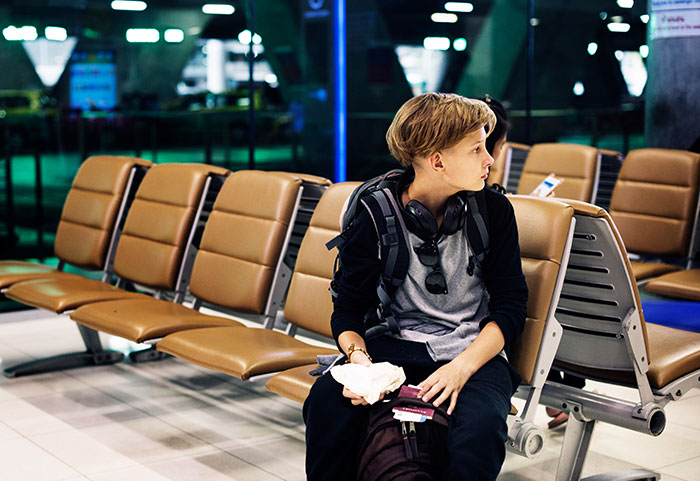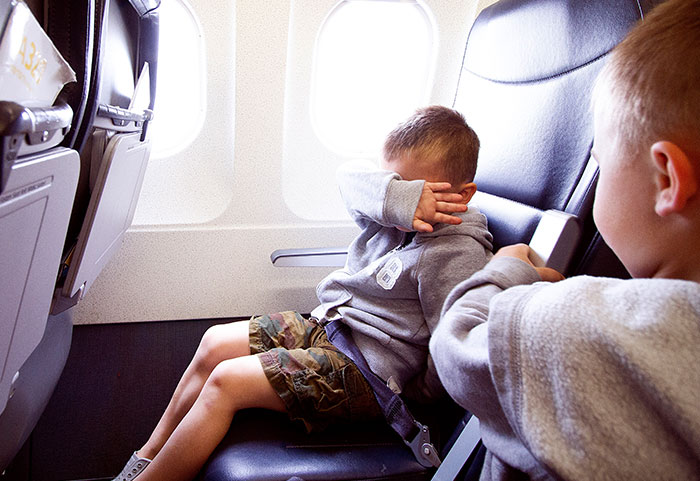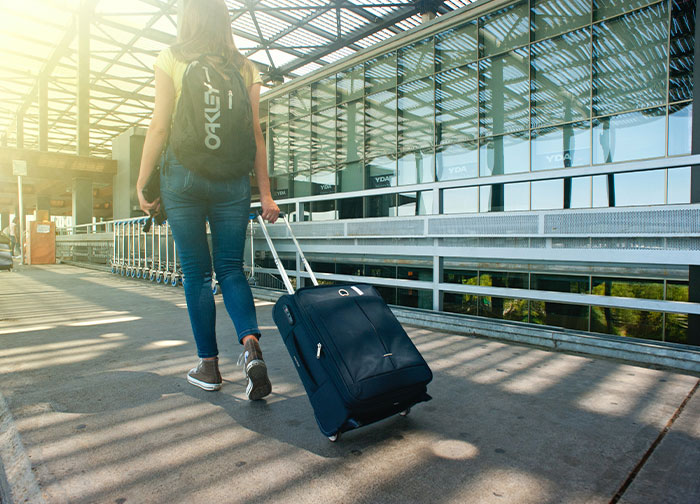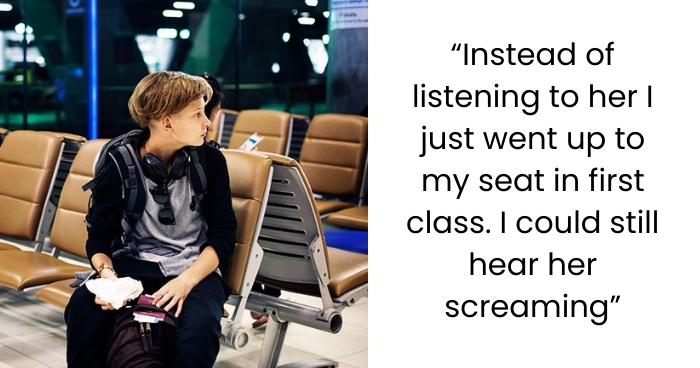Mom Insists on First-Class Seats for Her Whole Family, Makes 13-Year-Old Give Up His Spot — But Ends Up Getting Deplaned
Many might think that “free” is everyone’s favorite word, but not necessarily when it comes to an airplane! The largest seat-based skirmishes occur when travelers think they deserve a free bonus even though they did not pay for one. It is as if their ticket gives them a free pass for a pick and pay!
One of the most talked-about stories came from Reddit user u/winyyboi. He recently wrote about a 13-year-old flying solo who received a complimentary upgrade to first class, which is standard for children traveling alone with the airline. However, when a mother on the same flight noticed the upgrade, she expressed her displeasure. In other words, she believed that her own family, particularly her young child, should also be entitled to those premium seats.
The mother gets into a heated argument and claims the boy’s seat for her family. This sparked a commotion, with our fellow passengers reveling in the drama of the reduced fare. However, the mom’s wish ended up backfiring spectacularly because rather than get what she wanted, the mom ended up getting kicked off the flight, making it a very memorable occasion for all the passengers onboard!
Some passengers feel entitled to certain amenities for reasons beyond reasonable logic

A 13-year-old shared the awkward situation he faced because an overly entitled fellow passenger couldn’t accept not getting a seat upgrade























Turns out, unaccompanied flying is more popular than we think (although, not without its own set of drawbacks)

So if you ever happened to see your young child flying alone, you probably took a double take. Not your usual day; it is more the kind of deal you get in a home-alone flick! But would you believe that an unaccompanied minor flying solo is quite the routine with kids?
According to the Encyclopedia, approximately 7 million kids in the U.S. fly alone every year. And it ain’t just an American thing. In France, similarly, Air France estimates that 285,000 children travel independently on flights annually.
Airlines typically pay special attention to these young flyers. They provide extra support, watch out for kids, and even eventually upgrade them to make the trip a little smoother and safer. This means that the flight is less stressful, and this way, they will be able to arrive at their destination safely even if they are nervous.
The next time you see a child flying solo, just think—they are one of many small independent travelers out there, conquering the skies (with a little help from the airline crew)!
Each airline will have its own policies on assisting unaccompanied minors flying solo from the age of 5. Policies that help ensure the safety and security of young travelers.
Root of All Evil: eBay Second Chances, Sean O’Kane For instance, United Airlines requires children who are flying without parental supervision to don special red-and-white buttons. That makes it nice and simple for the flight crew to identify them so they can keep a closer watch. Even Southwest Airlines does a little something more—they introduce young travelers to the flight attendants so that the crew knows exactly who might need a bit of extra care.
Such simple policies ensure that children are well looked after and comfortable from takeoff to landing. But, even though these kids are navigating alone, they are never alone — the crew is there at every turn to keep them safe & make it go as smoothly as possible.
The only downside really to unaccompanied is different standards paired with regulations. However, even if children have all the information they need at hand, the process of traveling unaccompanied differs a lot depending on where you are going. Partly this is because the Transportation Department has no clear regulations against transporting minors unaccompanied by an adult. Consequently, every airline makes its own rules and sets its own prices —beginning with which children it will allow to fly alone in the first place.
Entitlement is on the rise in the current generation, studies have found

You know those annoying people who just think they wake up and the world revolves around them. The ones that practically ooze entitlement; and I mean like a thick ooze that could smother a city block or commandeer a whole row of seats on the airplane? Actually, this kind of behavior comes from a sense of entitlement — a 2017 study found that people who feel entitled are less willing to follow directions because they see the rules as arbitrary restrictions.
These people—who, again, feel a heightened sense of entitlement—would rather risk punishment or pay a fine than be subject to a system they feel is unjust in response to an incident like getting booted from a plane. However, which systems that they find to be unfair varies by person.
By contrast, a 2016 study from the University of Hampshire showed growing levels of entitlement among young people. Second, examining entitlement tendencies, millennials born from 1988-to-1994 scored 25% higher than adults aged 40–60 (Keller & Kahnweiler, 2015). Additionally, they scored 50% higher on entitlement than people in that older age group.
A different report by The National Institutes of Health found narcissistic personality disorder to be almost three times more frequent in folks in their 20s than among the generation now 65 and older. Also, one study indicates that the narcissism scale scores of college students have risen 58% from 1982 to 2009. That upsurge of narcissism is thought to be related to the boom in participation trophies in the early lives of a number of millennials. The report also indicates that 40% of millennials think they deserve a promotion every two years regardless of performance.
However, entitlement is much more than a personality and does more than harm the otherwise goofy person filled with it. For example, the Capitol riots in 2021. Reports vetting the rioters suggest the fears around the alleged — and largely unsubstantiated — “great replacement” were driven by white entitlement. Such an uncomfortable expression of entitlement can be turned into a motivation for terrorism.
During our formative years, a sense of entitlement is normal and to be expected
But then there is the positive/sparkly side of entitlement. And at times it should be the norm. What is so unique about narcissism in children is that (as F. Diane Barth, a New York City, and Massachusetts-based psychotherapist, explained in her blog, Psychology Today) “Sometimes called healthy narcissism or egocentrism, it is part of how a child views the world in the early stages of cognitive and emotional development.” Children and adolescents often go through self-focused phases, she explains, at times when they are overly confident, grandiose, or lack compassion because they are concerned with meeting their own needs. But it is getting on to parents to help their kids with boundaries.
People shared the same bewilderment as the OP in the comments







